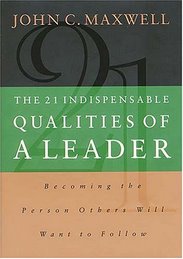I was reading a blog this morning by John Maxwell on "the power of good communication" and found it very interesting. I thought this would be a good seg way for the next Series 2 on communication for the readers.
So before I write about the power of good communication I thought first knowing the elements of good communication is critical.
Key elements of Good Communication
- Professionalism — This is a key in communication. Most of us after a few meeting become quiet informal in our approach during business and client meetings. While some clients don’t mind an informal approach, others may be offended. As we are in a global environment we need to be more professional as some business representatives from culture are not as friendly as others; Example- Japan has a very formal culture and professionalism is of utmost importance to them, how you greet them, how you hold their business card, etc.
- Enthusiasm — This makes the client, friend of business person feel you love what you go or talking about. You are very interested in this conversation and enjoying their company. Enthusiasm automatically improves your body language making your communication more effective. Example: Some phrases to convey excitement include: “I’m really excited about this project,” “I look forward to working with you,” “I can’t wait to begin this project.”
- Integrity/Responsiveness — The relationship is based on trust. To maintain a good relationship/communication with someone your communication to them should be honest and reliable. Your communication should be as accurate as possible. Your honesty and commitment defines the relationship. If you are accurate in your commitment it goes long ways and is a crucial element to good communication. Don't provide false promises or inaccurate dates just to look good at that given moment. As much as accurate information is important being responsive is even more critical. You may spend hours explaining things that may be irrelevant or does not address or answer someone's original concern or question.
- Respect — Your communications should convey a sense of respect for other person. Avoid language that belittles someone even if you think that their ideas are not valid. Instead, focus on your experience and how it benefits them. Also, stay away from angry outbursts.
- Organization — Your communication should be well-organized and well thought-out. There should usually be an introduction, a few main points, and a conclusion. You should also format your writing so that someone can easily scan your message and see the main ideas. Depending on how long your response is, you may also want to summarize it for your clients.
- Consistency/Clarity — Your words should be consistent within a single message as well as across multiple messages. Don’t confuse someone. The opposite person should always understand exactly what you are communicating.. Whenever possible, avoid rambling and be concise.
If you want to read John Maxwell's blog on "The power of good communication" here is the link
http://johnmaxwellonleadership.com/2010/03/01/the-power-of-good-communication/?utm_source=feedburner&utm_medium=email&utm_campaign=Feed%3A+JohnMaxwellOnLeadership+%28John+Maxwell+on+Leadership%29
Enjoy!!




No comments:
Post a Comment